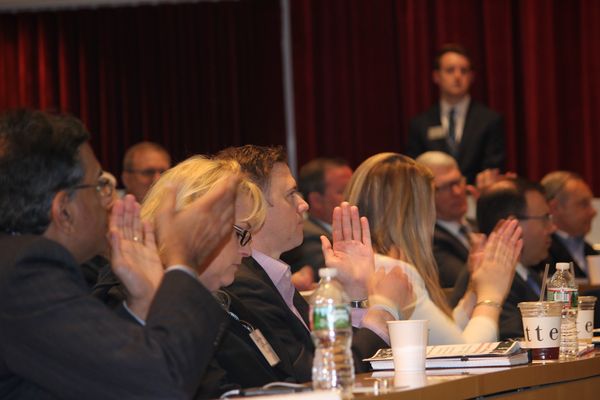
Yesterday, 100 leaders from industry and academia attended the first-ever Massachusetts Conference on Biotechnology Job Trends, an event organized by the Massachusetts Biotechnology Education Foundation (MassBioEd) in partnership with MassBio, the life sciences trade association.
Held at Sanofi Genzyme Headquarters in Cambridge, the event featured panel discussions from both industry and academia focused on the future of the life sciences workforce in the Commonwealth.
The conference served as an opportunity for MassBioEd to share the findings of its first Annual Job Trends Forecast, a compendium of Job Trend Reports to date as well as new survey information from biopharma employers. The report shows a 35% increase in the number of industry job listings, and forecasts that more than 4,300 new biotech jobs will be created by May 2018.
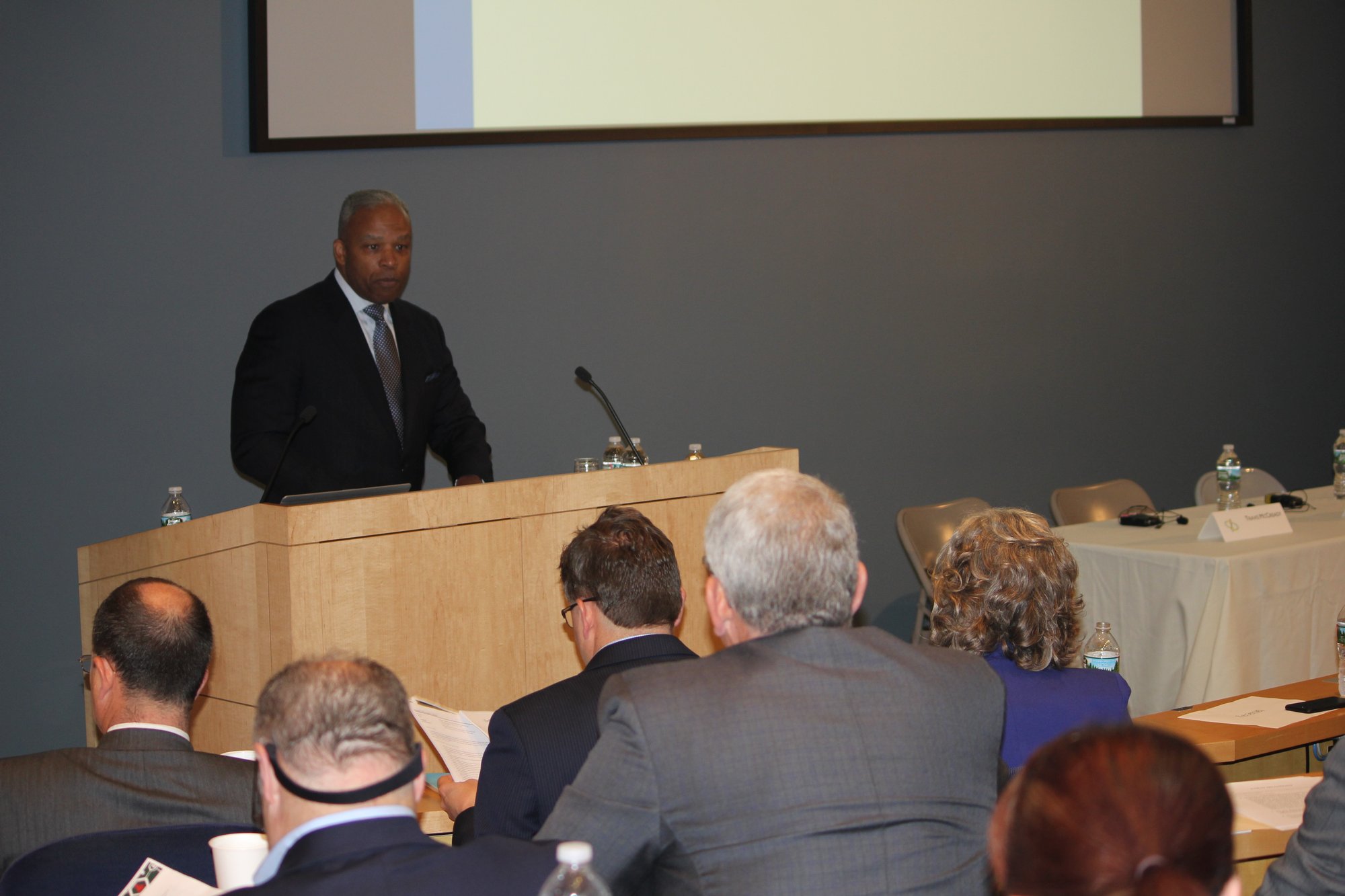
The findings also show that while the number of high-quality candidates has increased, an unprecedented growth in the industry has created a supply issue. Massachusetts Secretary of Labor and Workforce Development Ronald L. Walker II addressed this finding in his opening remarks: “We are closing the skills gap, so there is a workforce pipeline to fill the jobs that industry needs filled,” he said.
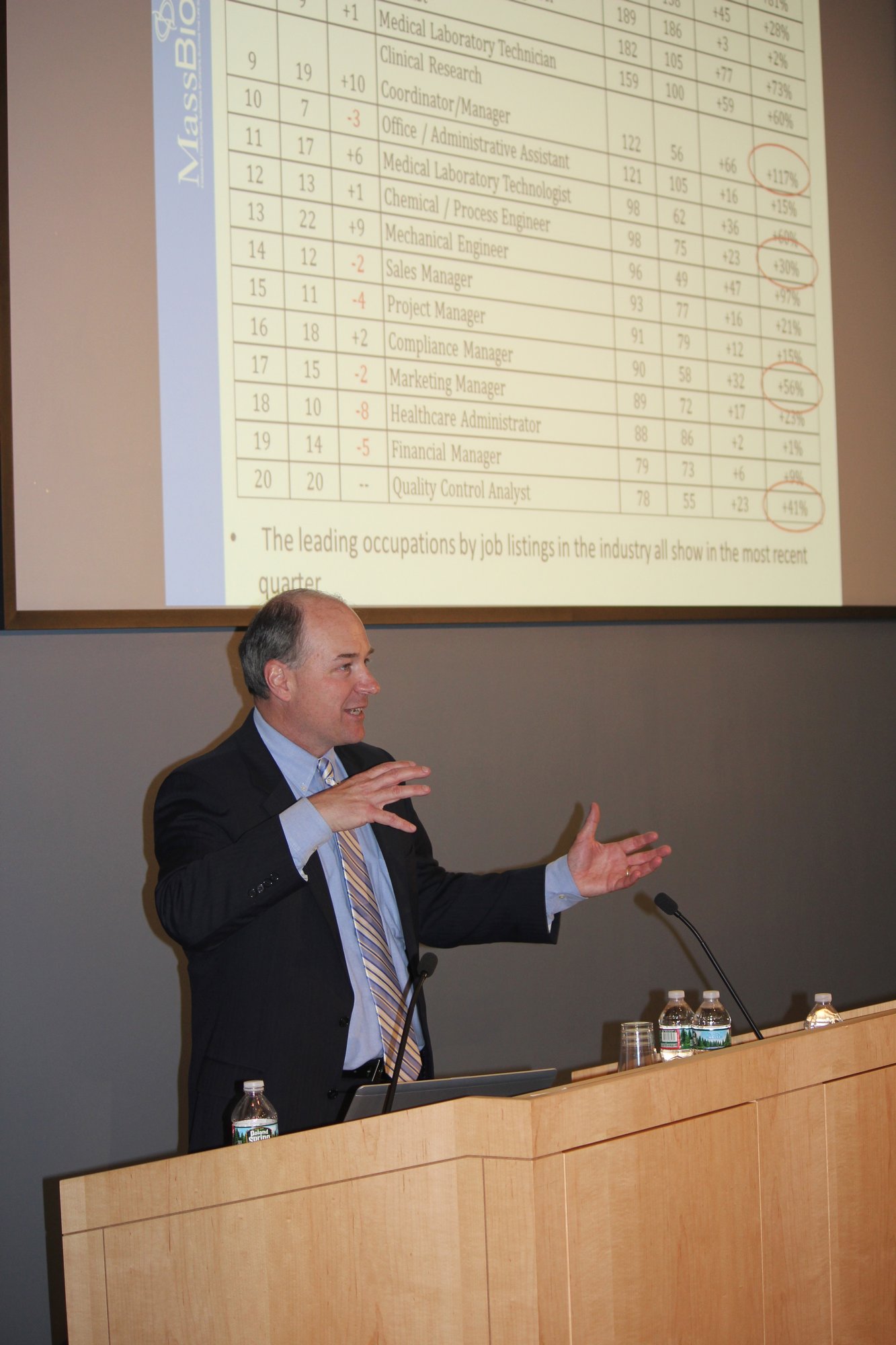
Next, Peter Abair, Executive Director of MassBioEd, took the stage to share highlights from the report, including a 25% increase in students who received degrees in biotechnology-related programs from Massachusetts colleges and universities in 2014 than in 2010. Even with the rise of qualified candidates, employers indicated that it is more difficult to find qualified talent than it was three years ago in 2013. As explained in the report:
Given the unprecedented growth of the industry in recent years, with dozens of notable facility expansions, these pressures on hiring can best be seen as quantity versus quality issues. By a better than two-to-one margin, employers who note a difference between candidates of today versus three years ago report that the today’s candidates are better prepared. The quantity of qualified candidates has risen in the period studied, but the quantity of demand has in some job categories outstripped supply.
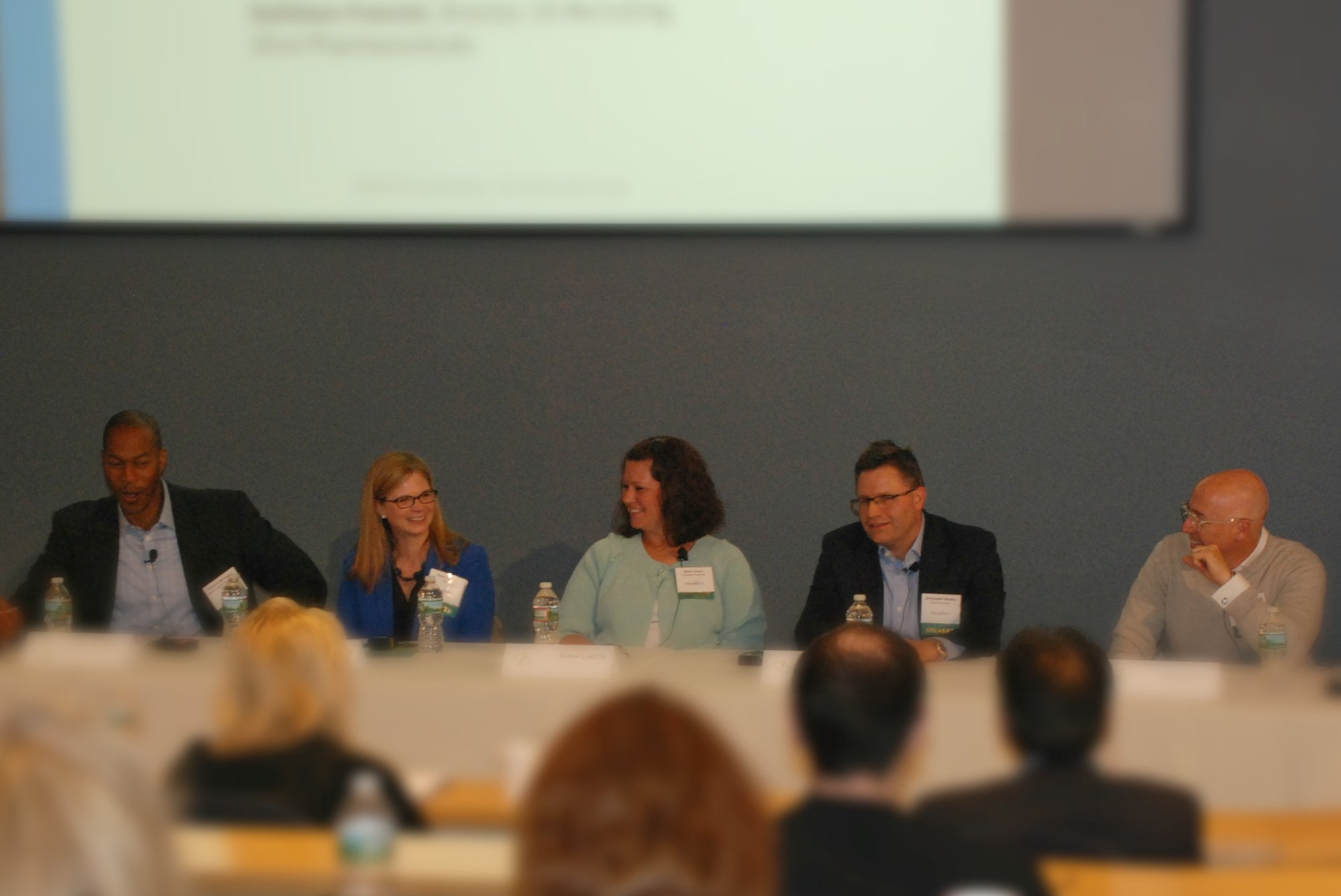
The first speakers took the stage to share their thoughts on what makes a qualified candidate, strategies for competitive talent acquisition and managing talent from within the organization from the industry perspective. The representatives from Alnylam, Shire, Sanofi-Genzyme and Foundation Medicine all agreed soft skills training is a necessity for new hires: critical thinking, problem-solving, creativity and teamwork are all a necessary part of biotech, they said. Travis McCready, President and CEO of the Massachusetts Life Sciences Center and moderator of the panel, suggested the need for soft skills training be addressed head-on, adding that the term can and should be more clearly defined for employees. “Culture fit is of paramount importance and a hiring differentiator at Alnylam,” added Craig Natale, Senior Director of Talent Acquisition at Alnylam Pharmaceuticals.
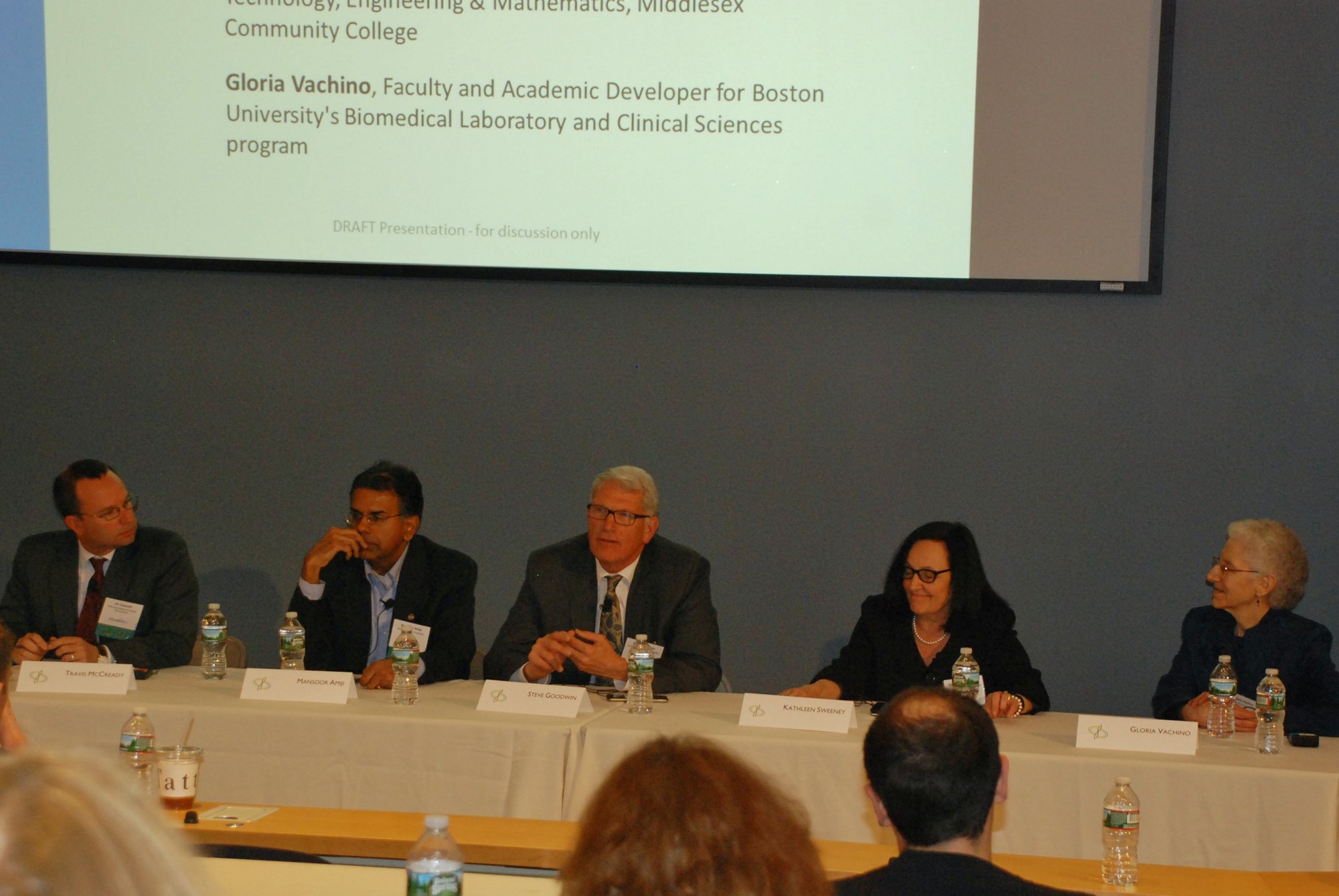
The second panel focused on the perspective of higher education and included representatives from Boston University, Middlesex Community College, Northeastern University and UMass. JD Chesloff, Executive Director of Massachusetts Business Roundtable, moderated the panel. Panelists reported a significant rate of hiring among their students upon graduation, and a shared need for continued dialogue on how higher education institutions can best prepare students for the workforce. Mansoor Amiji, Chair of Pharmaceutical Sciences at Northeastern University, said his focus is on helping students be more adaptable so they can transition through various roles within the industry.
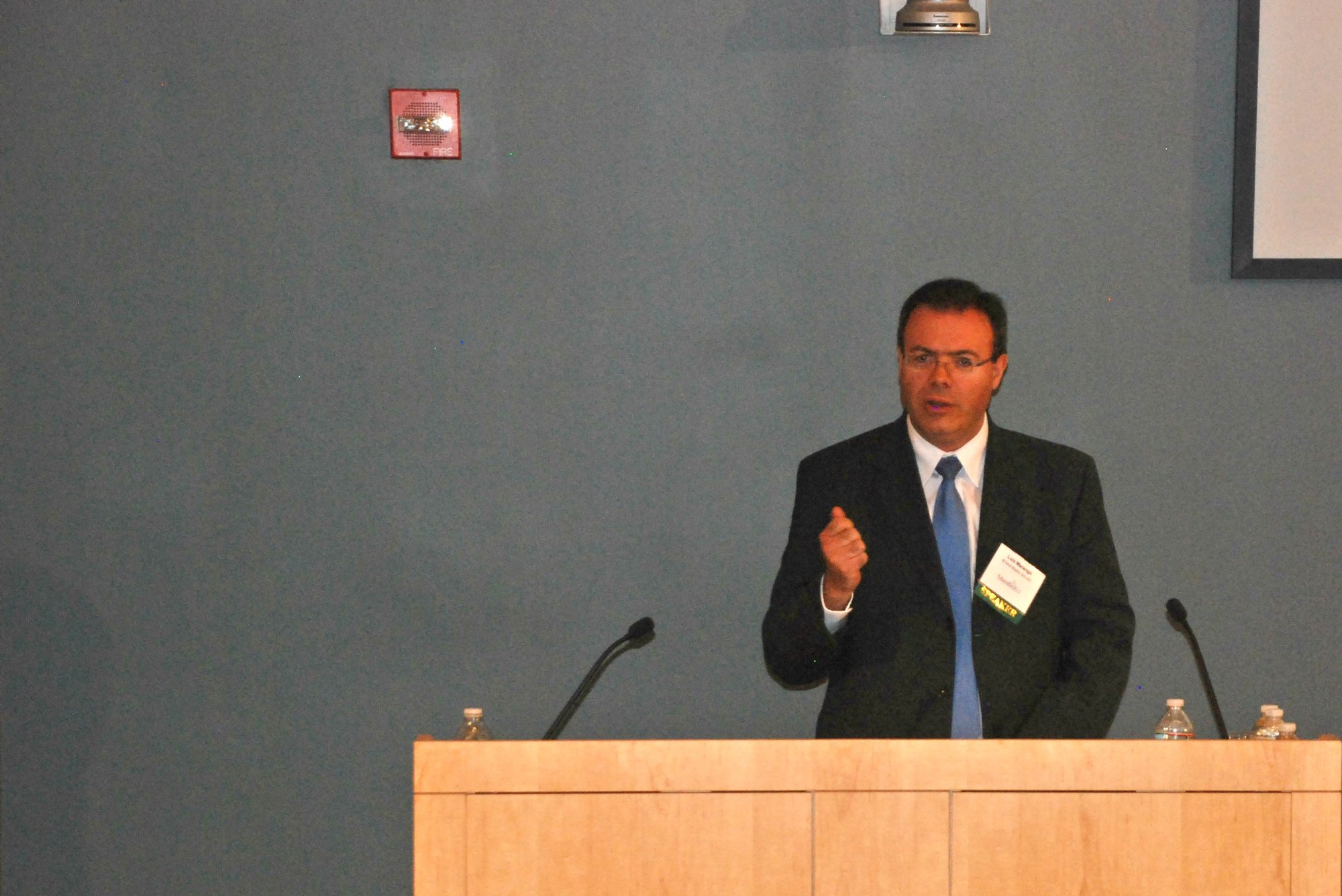
Luis Maranga of Bristol-Myers Squibb delivered the event’s closing remarks. Maranga focused on the importance of collaboration, stating, “Industry and academia must work together for a successful future for the life sciences industry.”
As we look forward to the future, MassBio and MassBioEd are committed to facilitating the conversation between academia and industry so we can meet employer needs for high-demand positions and ensure Massachusetts continues to be the national leader in the biotechnology industry.
Learn more about the event and the report findings in the Boston Business Journal’s coverage of the event:
Report: Job demand at local biotechs is outpacing the supply of graduates
Boston Business Journal Report: Biotech Jobs on the Rise
The event was part of MassBioEd’s job trends initiative which identifies workforce needs and illuminates the pathway from the classroom to careers in the life sciences. This initiative grew out of MassBio’s Impact 2020 Report which identified a challenge for companies as they grow and thrive in Massachusetts: data on and access to the right workforce. MassBioEd and MassBio share a commitment to collecting and sharing data, and conveying industry and education leaders to promote collaboration and better alignment on workforce development needs.